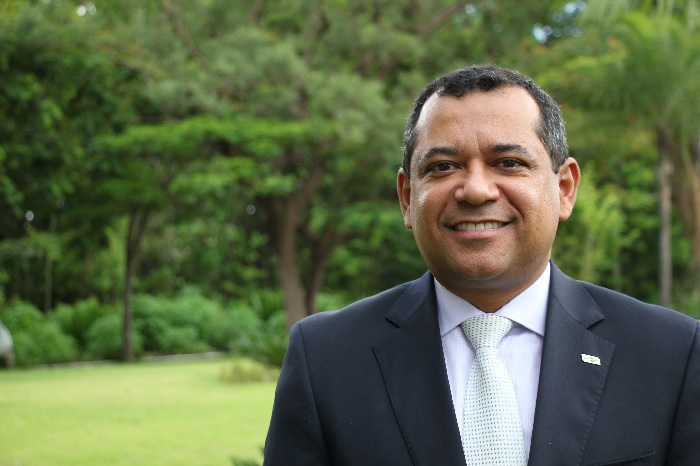Article - Beyond food
Article - Beyond food
Cleber Oliveira Soares
Executive Director of Innovation and Technology at Embrapa
Access to food and water, opportunities to generate income, social inclusion, and living in a healthy and peaceful environment are conditions that grant dignity and quality of life to people. However, the boost in the world's population and the scarcity of natural resources has imposed challenges for nations in the guarantee of such fundamental rights. In this scenario, Brazil must position itself in a leading role by providing food with sustainability.
Few places in the world combine climate conditions, land availability, and an entrepreneurial agriculture sector, which allow for further increasing food production, like Brazil. And, the best, without the need to increase crop areas. Besides exporting agricultural products to more than 150 countries, Brazil has already influenced the diets of many nations. For example, three out of every ten steaks exported in the world are from Brazil, not to mention the glasses of orange juice, chicken meat, etc.
It is necessary to emphasize that our crop and livestock production is considered one of the most sustainable on the planet, and Brazil must consolidate its reputation of major food producer within the standards and concepts of sustainability. It is possible to transform this vocation in an international symbol, as the brand of a country that relies on technology, innovates, produces with quality, and is capable of meeting the demands of more demanding markets with competence and competitiveness.
Upon reaching 45 years of existence, Embrapa is prepared to continue contributing to Brazil in this path and lead the future of the role of food for humanity. Brazil has been adhering to international integrating agendas, such as the United Nations 17 Sustainable Development Goals (SDGs). With 169 targets to be achieved by 2030, the SDGs propose global actions for poverty eradication, food security, agriculture, health, education, gender equality, reduction of inequalities, energy, water and sanitation, sustainable production and consumption standards, climate change, among others.
Agriculture, in the condition of producer of food, health, income, environmental services, and, why not say, peace, works in harmony with the SDGs. We have connected our strategies to this agenda in an exercise that allowed us to highlight Embrapa's contributions, sustained by partnerships, to promote better quality of life for people, increasing global resilience to man-made actions, and promote prosperity.
Connected to the SDGs, a series of global and national signals and trends were captured by Embrapa's Strategic Intelligence System, Agropensa, which coordinated a study and summarized seven mega-trends for Brazilian agriculture in the 2030 horizon: socioeconomic and spatial changes in agriculture; intensification and sustainability of agricultural production systems; climate changes; risks in agriculture; value aggregation on agricultural production chains; consumer role; and technological and knowledge convergence in agriculture.
In this context, more resilient and sustainable production systems - in the social, economic, and environmental aspects - should be prioritized, such as integrated crop-livestock-forestry systems, organic agriculture, and no-till farming. There will be an increased utilization of processes such as the biological nitrogen fixation, use of biological inputs, biological pest and disease control, waste recycling, protected production, among others.
There are clear signs that the sustainable intensification of production is the emphasis to be placed on the production of food, fiber, and agroenergy. The emergence of multifunctional rural areas, with the integration of non-agricultural economic activities such as tourism and gastronomy, tends to grow. And indicators, methods, and protocols for the certification of sustainable systems will be increasingly more used. The designation of origin is a type of certification that must be boosted, as it is already done with wines in Rio Grande do Sul. We can offer countless territorial origin products, like Europeans do. For example, we have jerked beef, red rice, and cattle-farming in Pantanal and many others to explore and develop.
We produce in volumes, but we need to aggregate value to our products. It is fundamental to build trust from a solid interaction with the world, seeking opportunities in market trends. We are the world's biggest producer and exporter of fresh coffee but it is necessary that we become become the largest producers and exporters of roasted, ground, and capsule coffee, among other possibilities. We have only 53 products with certified indication of origin, but with the potential to increase this number.
We have reached maximum yield levels that will only be surpassed with digital transformation in rural areas. And the field has demanded even more prepared professionals to work in this new scenario. The convergence of geotechnologies, such as the usage of GPS, UAVs, information systems, precision agriculture which utilizes robotics, automation, and artificial intelligence, even the digital twins, providing new efficiency and sustainability standards in agricultural production.
The growing digital and collaborative economy is going through a higher synergy between public power, agricultural science, productive sector, and consumers, with increasingly higher leading role of the later. Consumers are more demanding; besides a fair price and sanity of products, they require production processes that are based on parameters of social inclusion, low greenhouse gas emissions, with animal welfare, for example, within a new view of consumption.
The agricultural revolution in Brazil has happened through science, technology, and tropical innovation. We moved on from the green revolution to integrated systems and we will migrate to a biologically-based agriculture. We have stopped importing food, started to supply it to part of the world, and are influencing consumption habits. Nevertheless, beyond food, nutrients, the daily bread and peace, we are contributing to new parameters for humankind.
Secretariat of Innovation and Business (SIN)
Translation: Luís Filipe Escobar, supervised by Mariana Medeiros
General Secretariat
Further information on the topic
Citizen Attention Service (SAC)
www.embrapa.br/contact-us/sac/

